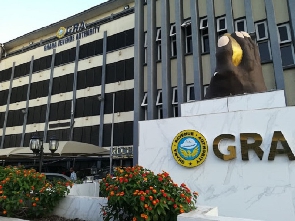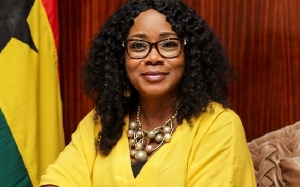Re: Ethnic Sentimentalism, Cronyism and Plutocracy: Challenges Facing Ghana’s Democracy
I was in the middle of a rejoinder to Mr. Bempongs’s article when I came across Mr. Daniel Haluvi Addison’s. Both articles are very interesting to read; they raised very interesting issues which border on tribalism, nepotism and what Bempong captioned as plutocracy (though I do not understand the word, I think it is a class system based on the amount of wealth one has. This is no different from the property owning democracy being peddled by the NPP government). Ghanaians, what is wrong if we all are able to own some form of properties in our lifetime and then pass them on to our children? That definitely will be the wish of every Tom, Dick and Harry in his or her right mind. But what then is the surest way to achieve this goal? Is it through manipulation of the system, which could be termed a deviant act? Or acceptance of the institutionalized means of attaining the goals, which is just right in itself.Going back to both articles and comments made by visitors to Ghanaweb send a signal that all is not well. it is clear that some groups of persons, who are also Ghanaians just like all other Ghanaians, are feeling marginalized in the sharing of what is supposed to belong to all Ghanaians. It is also understandable that due to high levels of unemployment in Ghana, some prominent people in charge of our institutions are manipulating the system to the advantage of their cronies, families, tribesmen and worst of all political affiliates. Clearly, according to Bempong, what is supposed to guide us-meritocracy-has been downplayed to such an extent that one even begins to wonders if our dear country can boast of people of conscience, values or if we understand what is moral and let alone putting into practice.
Now, let’s consider the issues raised by these individuals critically. In Bempong’s submission one could deduce that he has seen so much manipulation of the system based on tribal, family, political and other unfair lines as a civil servant. The question I would like to put to Ghanaians is that are we saying, as Ghanaians, that these things do not happen in our society or they happen yet we do not comment? If they happen but we do not comment, how long can we remain silence? Are we waiting until they assume dimensions that will finally devour both the perpetrators and the victims, in which case there will be no winner? Do we have mechanisms as of now to check some of these things with the view to rooting them out from our society because they are too parochial and do not project the national interest? If the answers to these questions make us quiver in our boots, then it is time we embark on a serious soul searching and cleansing to find answers to these questions before something befalls us as a country.
Some commentators or visitors to the site argued that the only way out of this is for the Ghanaian graduate to create own jobs. Whilst it is a good suggestion, I beg to differ in my analysis of the issues being raised here. Pleading your (readers) indulgence, I will like to posit that the issues being raised by the writers are issues that have to do with our institutionalized means of attaining set goals in our society. If societies have set goals and prescribed means to attaining these goals, they become social contracts which must thrive on social cohesion which will not be amenable to manipulation from forces of influence. It is only by this that we can say we are building a just and equitable society. But when the opposite is applicable, mistrust, suspicion, hatred and worst uncertainty becomes the order of the time. This, in fact, could endanger the we-feeling, the oneness, the solidarity and the unity of purpose which are to propel us towards our developmental goals.
The issue of setting own business is my next line of argument. May I ask what has happened to the Presidential Special Initiatives (code named PSI)? Specifically, how is the PSI on cassava and starch faring? How many tons of starch are we able to produce since the inception of the PSI on cassava and starch? How much revenue are we able to generate from this PSI and how have we used it? The least said about the PSI on garment and textiles, the better. I am waiting for somebody to convince me that they have been successful when even with the PSI on garment and textiles all our textile and garment factories are folding up increasing the level of unemployment in our country. Can an insider educate me on why Juapong Textile has completely folded up? Lets us be careful when we make comments on this forum on very important national issues. If even projects sponsored by government with the taxpayers money could not see the light of day due to reasons we are all aware of-kickbacks, fixing square pegs in round holes, favourtism in the ward of contracts, then spare our young graduates the disgrace and frustration of having to bear the brunt of the banks in the event their small scale endeavours fail.
To contributors who think that our young graduates are not doing enough to help themselves, let me ask: How many young graduates are able to secure loans from the banks to use as a start-up capital for projects they dream of? Do they know how frustrating it is for a young man without any collateral to raise even a $1000 from a Ghanaian bank? Maybe Kufour’s son could quickly form a conglomerate to bankroll close to $7million to support hotel wawawaw because he once worked for a renowned institution like Pricewaterhouse. But I think even in this case he did not create his own job just after leaving the four corners of Greenwich University (bottom-leagued university in the UK). From reliable sources, I understand for him to even secure a place at Pricewaterhouse, the rules had to be bent to favour him. So what are we talking about.
In my opinion, if we now think that even the drama student, the archaeology student, the religion student, the engineering student, the philosophy student and a host of others outside the traditional business programmes must all create their own jobs, have our institutions of learning prepared them for this task? Setting up a business no matter how small requires some level of entrepreneurial acumen. This to some, nature has endowed them plentifully. To others, it could be learned and mastered overtime through education of mentorship. But we should always bear in mind that there are still many more who are followers who are to be managed and can never be managers, inventors or creators because nature has made them so.
To the uninformed public who thinks that some courses in the universities are less important and do not offer good job prospects, I think their thinking and views are completely misplaced. This reminds me of a comment by Nana Konadu Agyemang Rawlings in 1998 to the effect that students should choose good course which offer brighter job prospects after school. We should understand that philosophy and other liberal arts subjects are as important as the air we breathe. I have come to appreciate why our society has become economically stagnant after 50 years of independence simply because we do not have leaders who can stand up to defend what is right and make decisions based on morally sound philosophies, but today they would have the guts to blame our young population for failing to create jobs. What have they themselves done in that direction apart from looting state coffers? Is it in the power of my young son in the university to walk to his professor and tell him to change the programmes of study to make them more responsive to the needs of our society or that is the work for the policy-maker who dines and wines on the taxpayers pocket? They should think before they talk for where this is taking us we don’t know.
My fear is that the situation would even get worse with time with all the churches and any small association opening a university. I wonder if we truly understand our development matrixes and know where we are heading. Instead of venturing into the hard sciences and blending them with the liberal arts and the business programmes, most of these universities are only interested in business management, administration and theology. Though they also have the resource to also venture into setting up businesses, factories and jobs where some of our graduates could find employment that has not occurred to them yet. They are only interested in adding to the numbers.
To our young men and women, unemployment, no savings towards social security which means insecured old age, is something they must dread. The implications are misery, short life span and disgrace and burden on relatives who may not be willing to take any additional responsibility. The way forward therefore is we all must work to eschew tribalism, cronyism, plutocracy wherever we find them. If this means we must vote a notorious government out before they do more harm that be it. If that means we must retain an incumbent government based on its performance on these issues in order to prevent such occurrences so be it.















